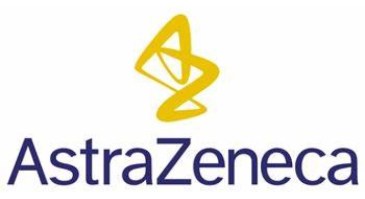AstraZeneca’s SERENA-6 Trial Marks Breakthrough in Breast Cancer Treatment
WILMINGTON, DE
— Groundbreaking results from AstraZeneca’s Phase III SERENA-6 trial reveal a significant leap forward in the treatment of hormone receptor (HR)-positive, HER2-negative advanced breast cancer. The trial demonstrated that switching to AstraZeneca’s camizestrant combined with a CDK4/6 inhibitor reduced the risk of disease progression or death by 56% compared to standard aromatase inhibitor-based treatment. This study is the first to show the value of monitoring circulating tumor DNA (ctDNA) to detect resistance early, enabling a proactive change in therapy.
The trial evaluated camizestrant in combination with CDK4/6 inhibitors such as palbociclib, ribociclib, or abemaciclib. Patients with emergent ESR1 mutations who switched to the camizestrant combination saw their progression-free survival (PFS) extend to a median of 16.0 months, versus just 9.2 months with the standard regimen.
“Today’s news marks a pivotal moment in breast cancer care,” said Dr. Nicholas Turner, co-principal investigator for the trial. “By treating resistance before it drives disease progression, we can optimize outcomes for patients, significantly extending their quality of life and the benefits of first-line treatment.”
This trial also showed that the camizestrant combination delayed deterioration in global health status and quality of life by 47%. Median time to health decline was 23.0 months for the camizestrant combination, compared to 6.4 months for those on the standard treatment.
The innovative SERENA-6 design utilized ctDNA monitoring to detect endocrine resistance early, marking a shift in how breast cancer progression is managed. Susan Galbraith, Executive Vice President of Oncology R&D at AstraZeneca, emphasized, “Camizestrant is redefining the clinical approach in breast cancer. These results establish its potential to become the new standard-of-care in HR-positive breast cancer.”
AstraZeneca’s approach also showed promise in safety. While there were higher rates of Grade 3 or more severe adverse events in the camizestrant arm (60%), these effects aligned with known profiles of combined CDK4/6 inhibitor treatment and were mostly manageable.
Based on these compelling findings, the FDA has granted Breakthrough Therapy Designation to camizestrant in combination with a CDK4/6 inhibitor for HR-positive, HER2-negative advanced breast cancer.
The SERENA-6 trial heralds a new strategy in cancer care, where ctDNA-guided intervention could reframe resistance management and extend the impact of first-line therapies. This development offers renewed hope for patients battling advanced breast cancer, paving the way for extended survival and improved quality of life.





